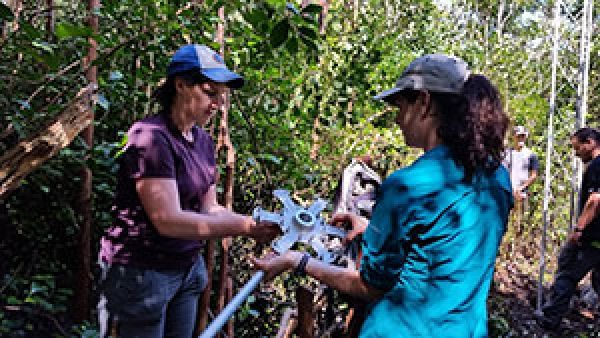“Hawaii is one of the most altered ecosystems in the world, and we are lucky enough to examine how these nonnative-dominated communities alter important processes, such as seed dispersal,” says Corey Tarwater, an assistant professor in the UW Department of Zoology and Physiology.
“What we have found is that not only do nonnative species dominate species interactions, but that these nonnative species play a greater role in shaping the structure and stability of seed dispersal networks than native species. This means that loss of a nonnative species from the community will alter species interactions to a greater extent than loss of a native species.”
Tarwater was the anchor author of a paper, titled “Ecological Correlates of Species’ Roles in Highly Invaded Seed Dispersal Networks,” which was published Jan. 11 (today) in the Proceedings of the National Academy of Sciences (PNAS). PNAS is the official journal of the National Academy of Sciences and an authoritative source of high-impact, original research that broadly spans the biological, physical and social sciences.
Continue reading at University of Wyoming
Image via University of Wyoming


